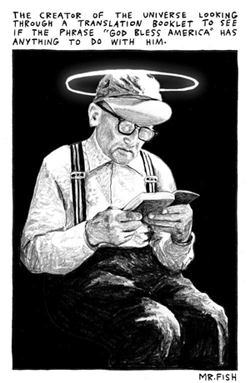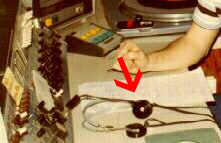I’ve been reading about and practicing meditation for a couple of years with the goal of a quiet mind, free from thoughts, for half an hour.
(If you’re an experienced practitioner of meditation, please don’t write to tell me what I’m doing wrong. I will stipulate that.)
I don’t know at what age we have our first thoughts. But once they start, they don’t stop, except when we’re asleep. (Do we think when we’re asleep? Are dreams thoughts?)
Most of us believe we “choose” our thoughts. I can think about a banana… and then switch to a porcupine. If that’s true, it would seem to follow we can choose NOT to think. I have no idea if that is, in fact, possible. But maybe we can reduce the number and “volume” of our thoughts. Sort of like the relative quiet that comes after turning off a blaring television.
Why bother, one might ask. Well, it is restful and pleasant and might have health benefits (But let’s not go there.) I’m also curious about what I might “hear” if I can tune out all of the static.
Back in my radio days, one of the “sign-on” procedures involved warming up the station transmitter. Once it was ready, you punched a button that turned on the carrier (wave). Then I’d walk back into the control room, open the mic, and read the sign-on announcment.
If a listener had their radio tuned to our frequency (830), they would hear a low hum for those few seconds before I began talking.
That’s the “almost silence” I’m shooting for. Who know what signal might be hidden by the noise of our daily thoughts?


